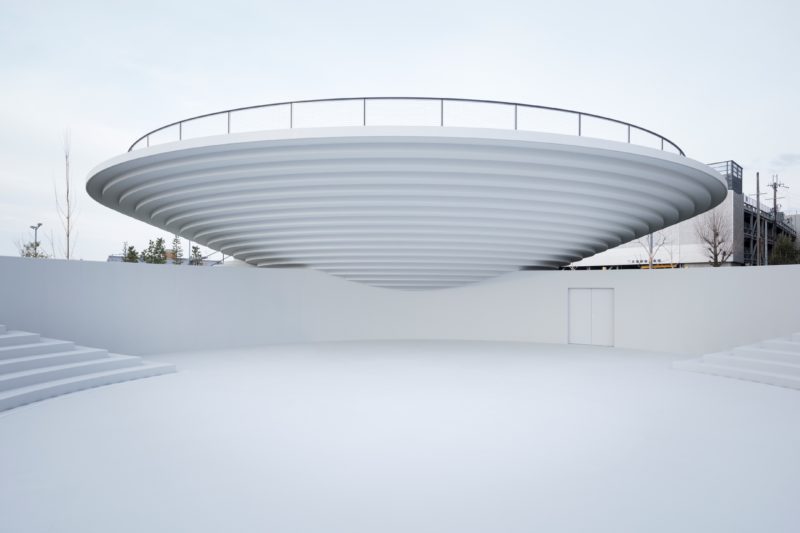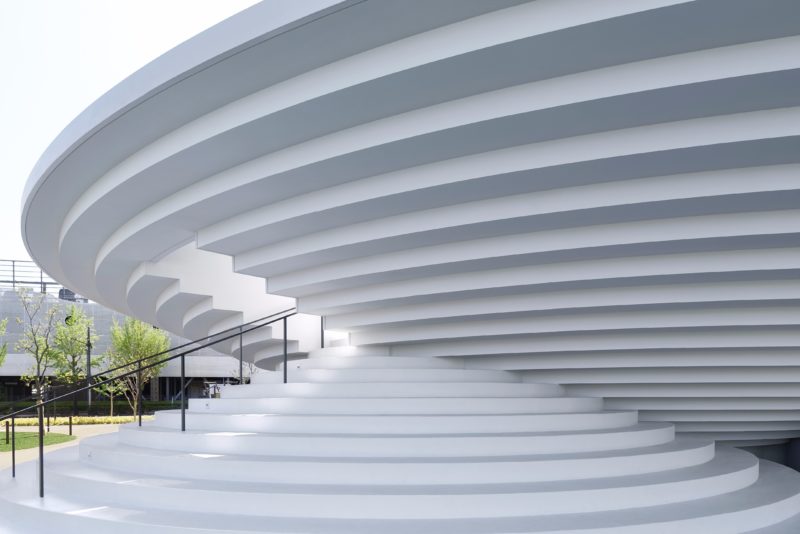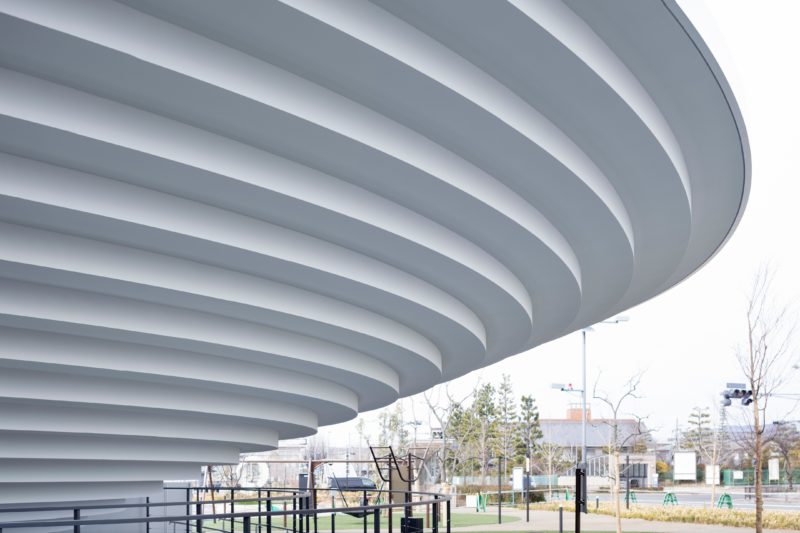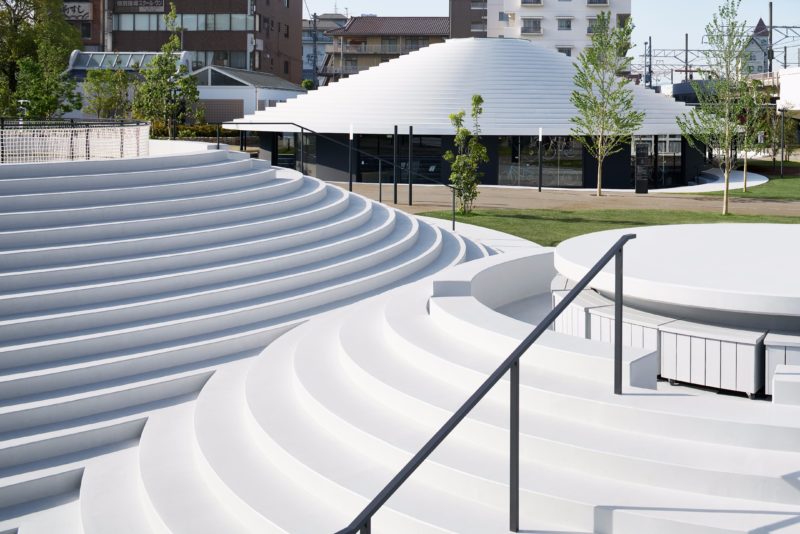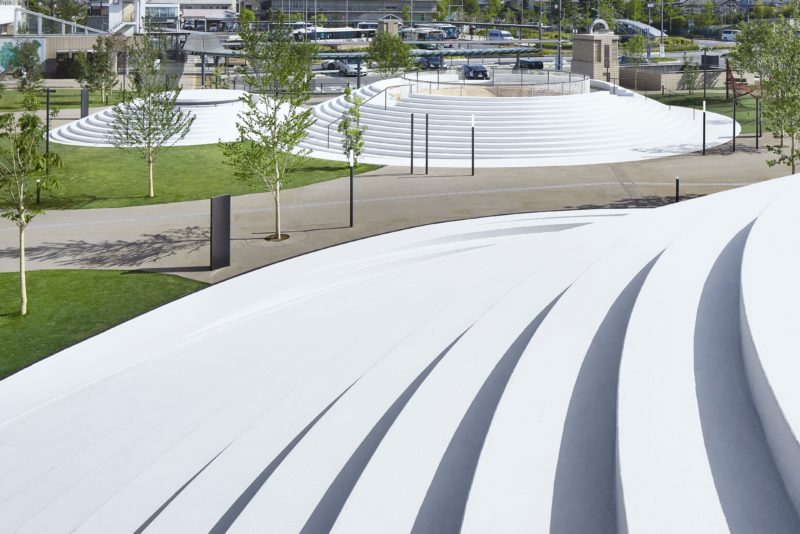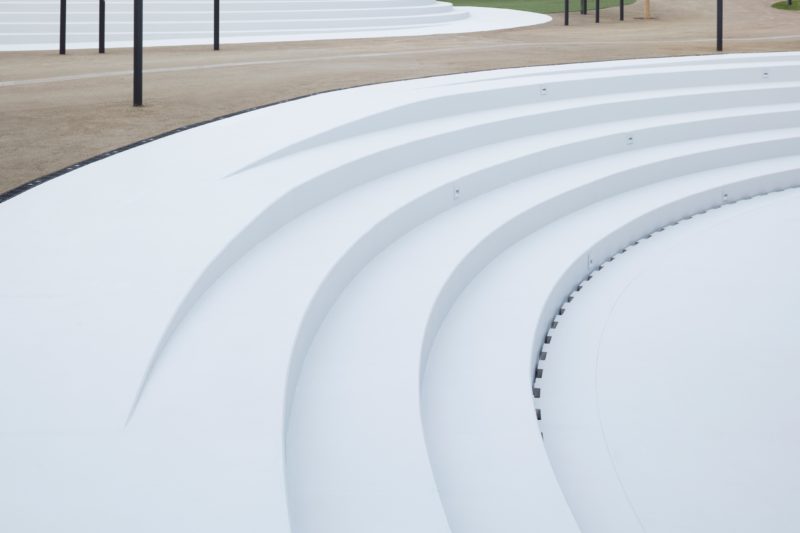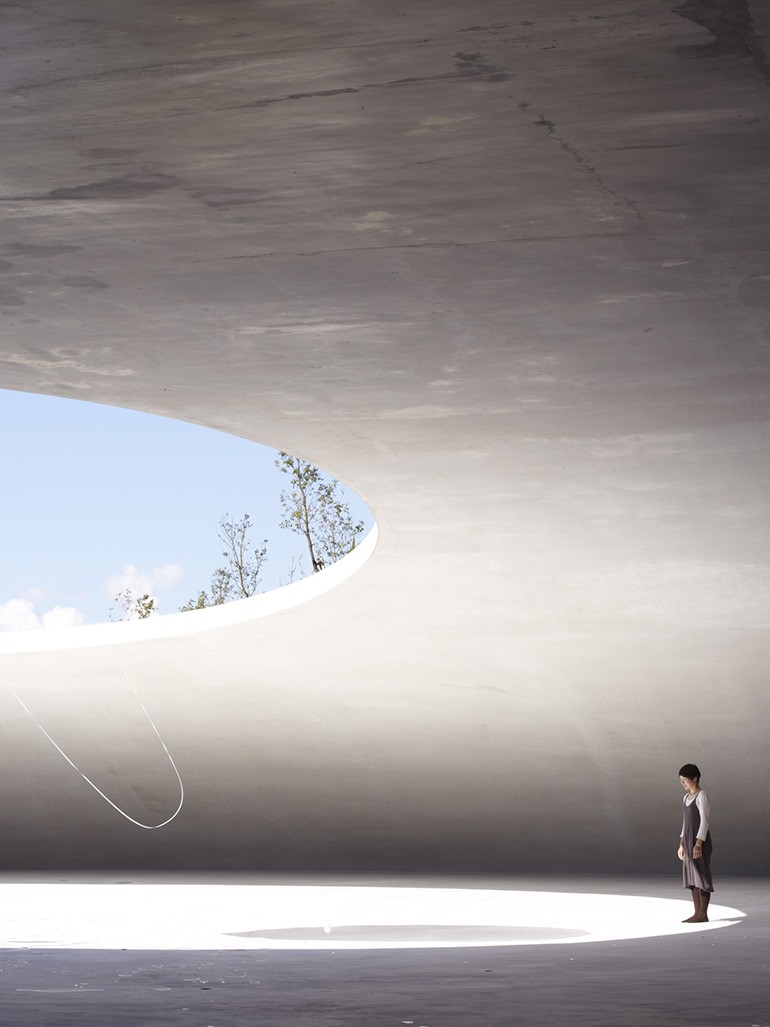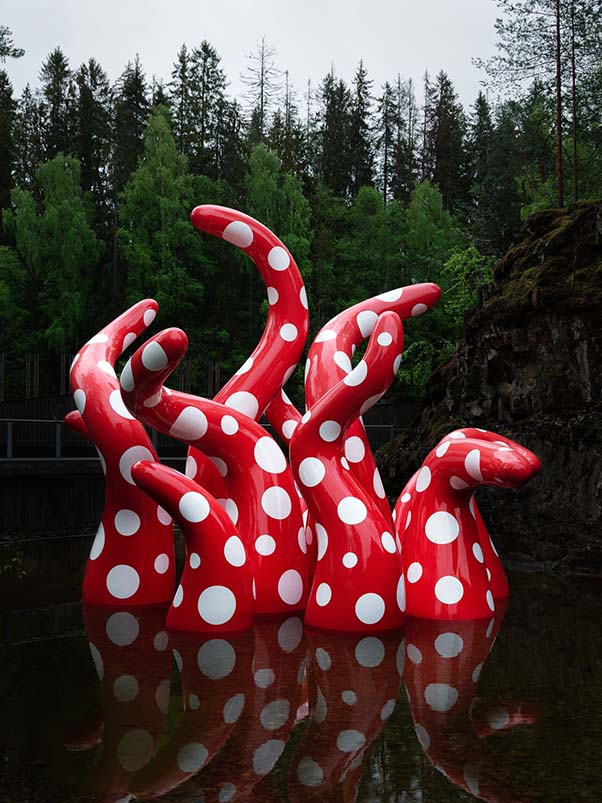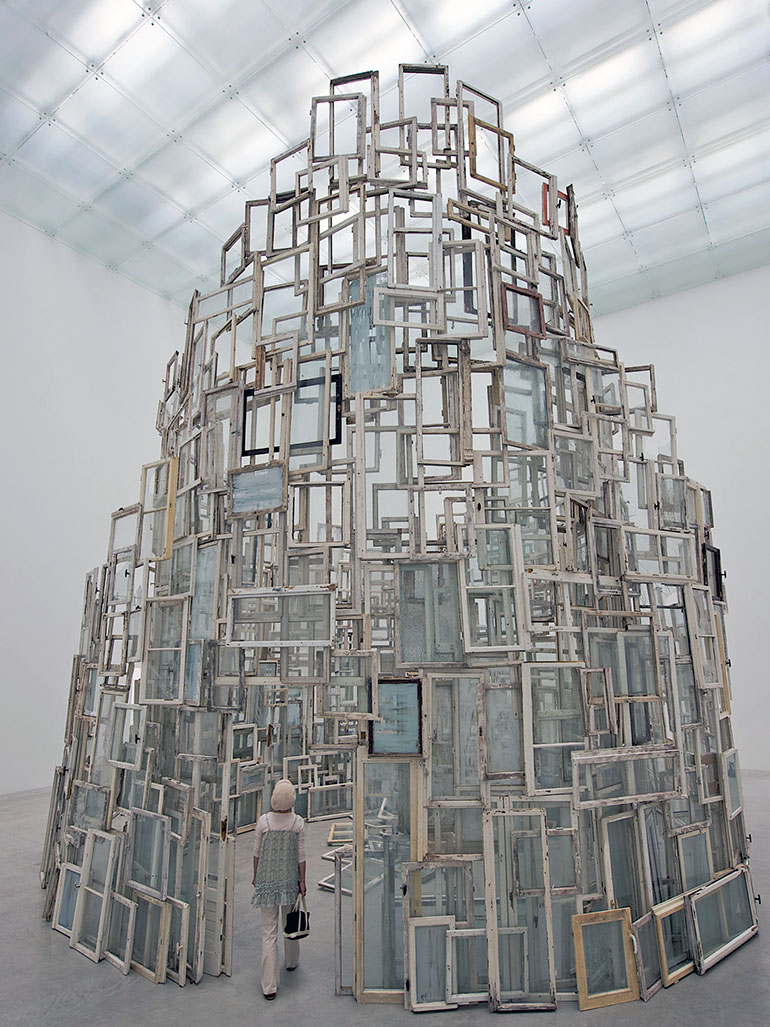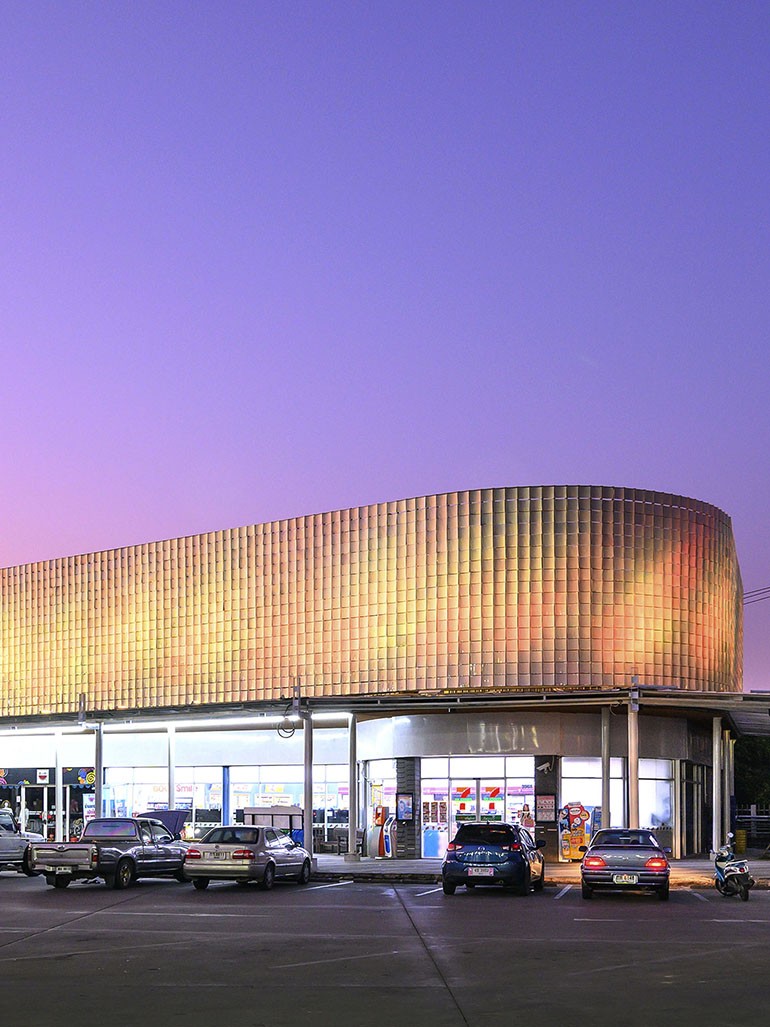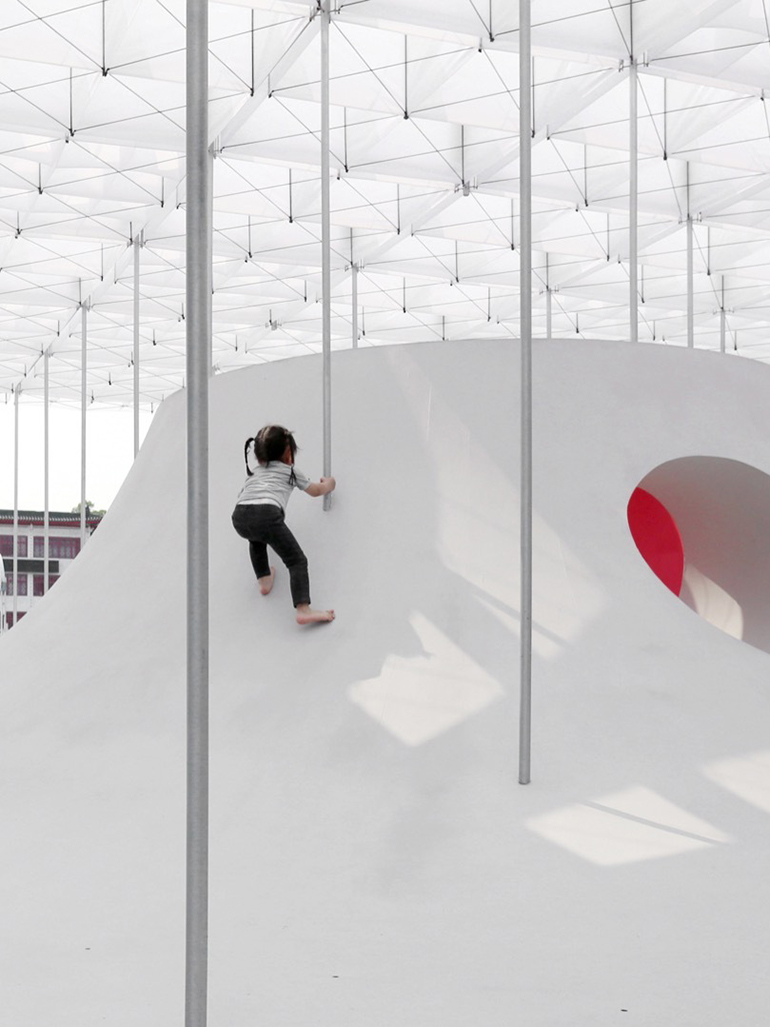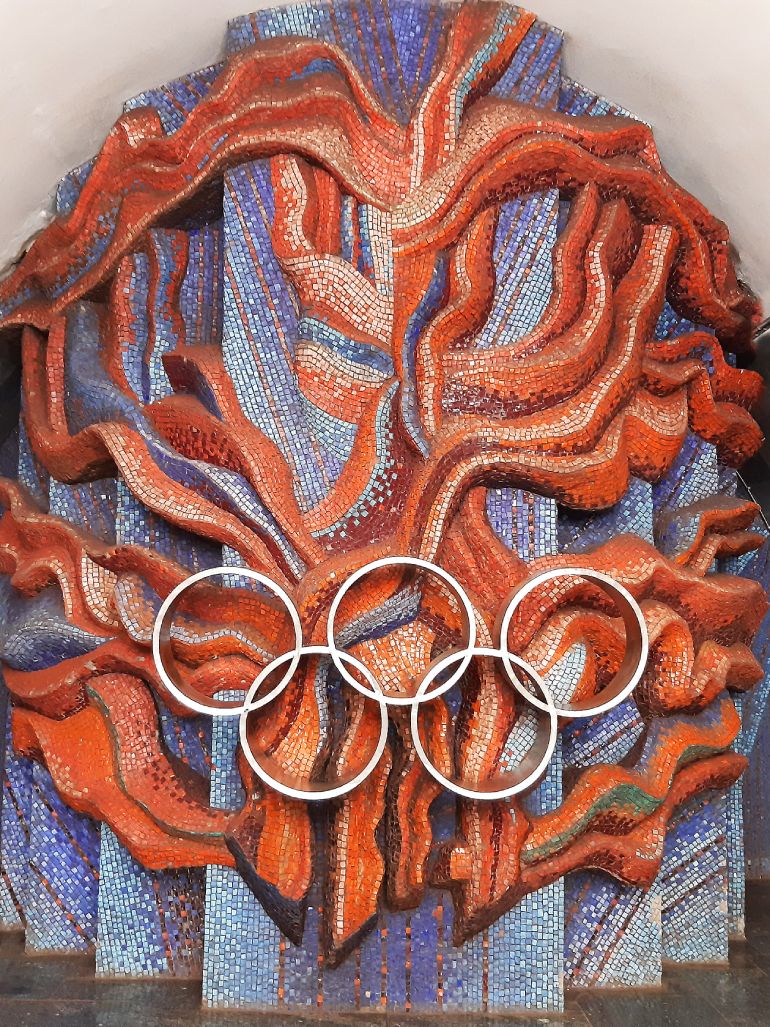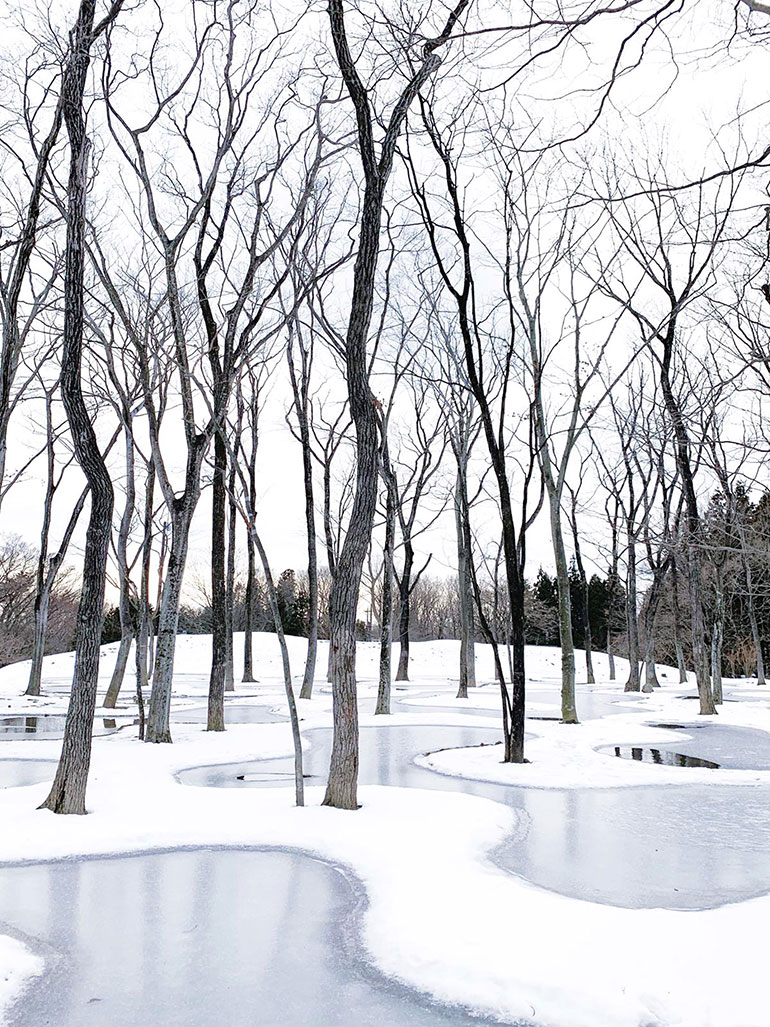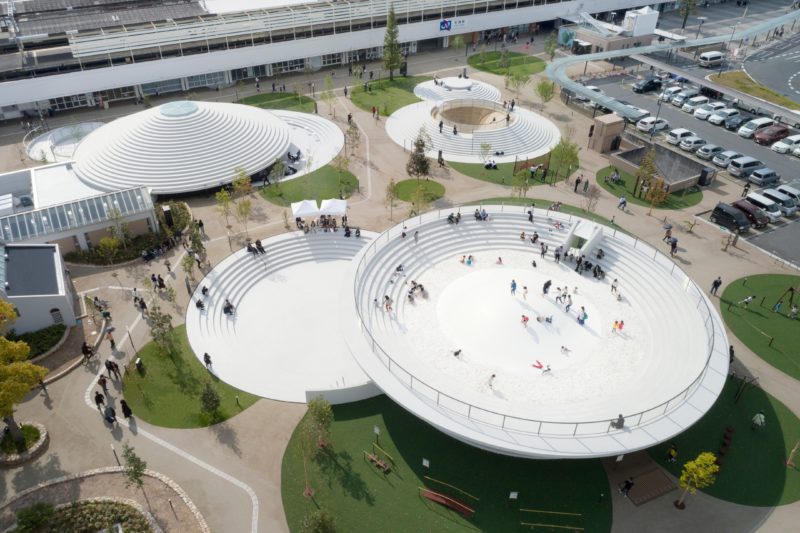
803 Kawaharajocho, Tenri, Nara 632-0016, Japan Copy to clipboard
34.600405, 135.831114 Copy to clipboard
Accessibility
Tenri Station Plaza CoFuFun is a public space designed with inclusivity in mind.
The plaza features gently sloping ramps and wide pathways, ensuring easy access for visitors with mobility aids, strollers, or wheelchairs.
The open design facilitates smooth movement throughout the area.
Before you go
Behavior: Respect the shared public space by keeping noise levels moderate and disposing of litter properly.
Nearby Attractions: The plaza is adjacent to Tenri Station, providing easy access to local shops, cafes, and cultural sites within Tenri City. Nearby attractions include Yakushi-ji Temple, which features interior design work by Toyo Ito, the Nara Centennial Hall, and the Great Peace Prayer Tower.
Best visit time
The plaza is open year-round and can be visited at any time.
To avoid crowds and enjoy a more relaxed experience, consider visiting during weekday mornings or late afternoons.
The architectural features are particularly photogenic during these times due to favorable lighting conditions.
Directions
By car
From Kyoto: Drive south via the Meihan Expressway towards Tenri Station in Nara Prefecture. The journey takes approximately 1 hour.
From Osaka: Take the Nishi-Meihan Expressway eastbound towards Tenri Station. The journey takes approximately 45 minutes.
By public transport
From Kyoto: Take the JR Nara Line to Nara Station (about 45 minutes), then transfer to the JR Sakurai Line to Tenri Station (another 20 minutes).
From Osaka: Take the Kintetsu Nara Line to Yamato-Saidaiji Station (about 30 minutes), then transfer to the Kintetsu Tenri Line to Tenri Station (another 15 minutes).
Parking
Nearby parking facilities are available, though spaces may be limited during peak hours. Public transport is recommended for convenience.
What is the CoFuFun Plaza?
CoFuFun Plaza is a work of wonders by the Japanese architecture company Nendo 1. It was constructed for the Tenri Station in the Nara region of Japan. The 6,000 m2 (64,583 sqft) plaza turned into a space that locals and visitors would be able to use for gatherings and events, as well as into a tourist information center.
CoFunFun is still the largest project by the architecture firm Nendo and their first one in the public place. The construction of the project started in 2014, before which the area, particularly the train station, was in the urban sense, dead.
At peak times, it was overcrowded as people from the town made their way either to and from work in the close-by city of Osaka. However, during the rest of the day, according to Nendo designer Oki Sato, the space in front of the station had become a place that people just passed by. The mayor of the town then decided to make a change and called for a design competition to rejuvenate the site.
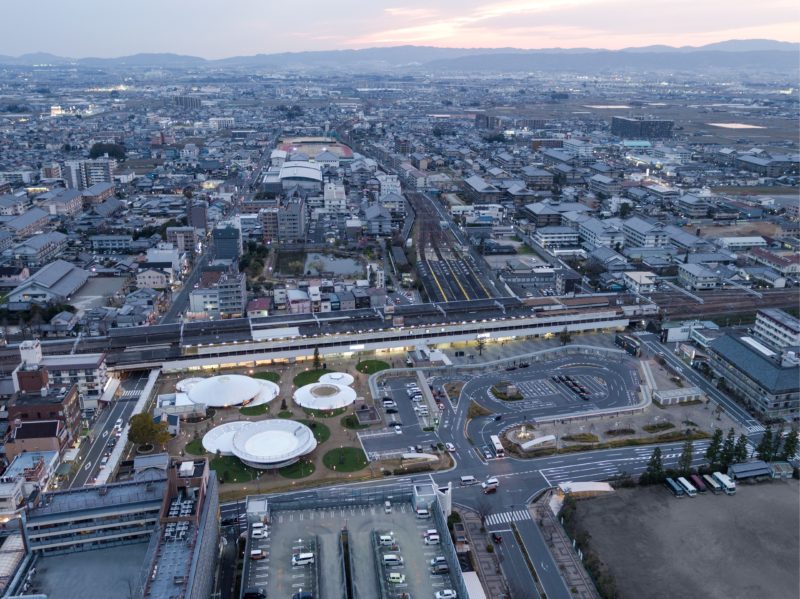
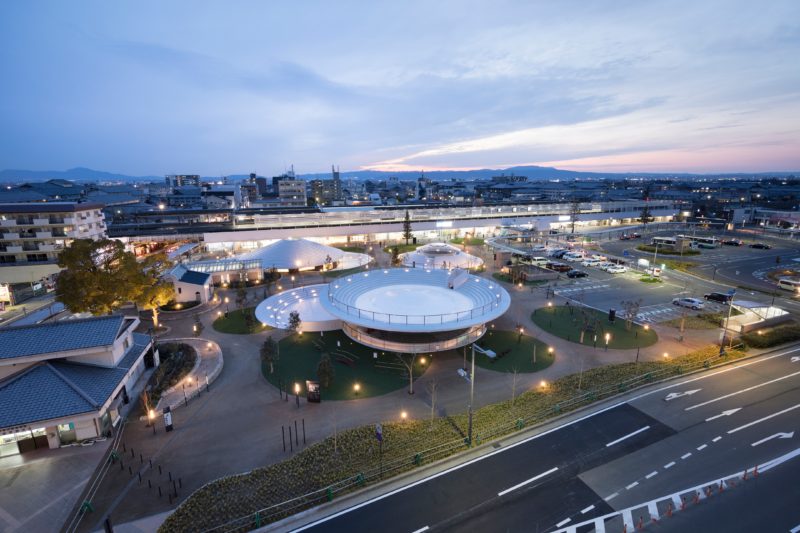
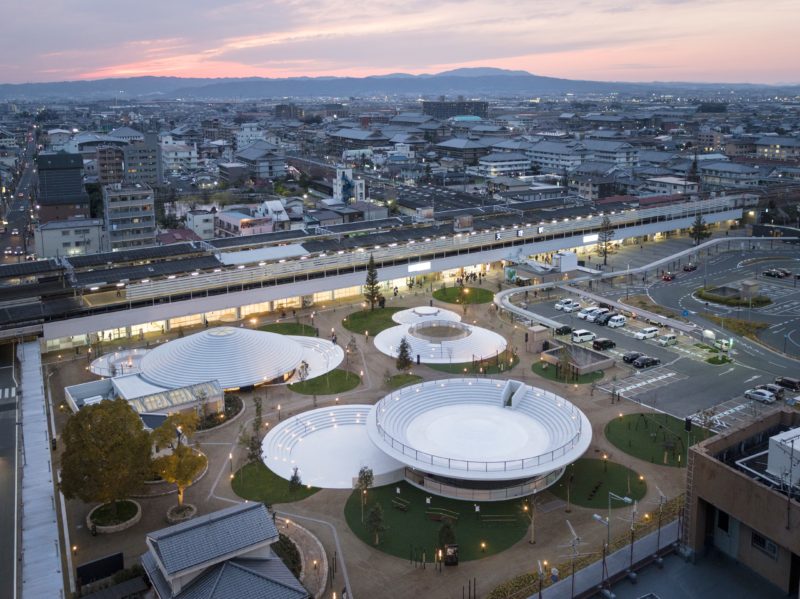
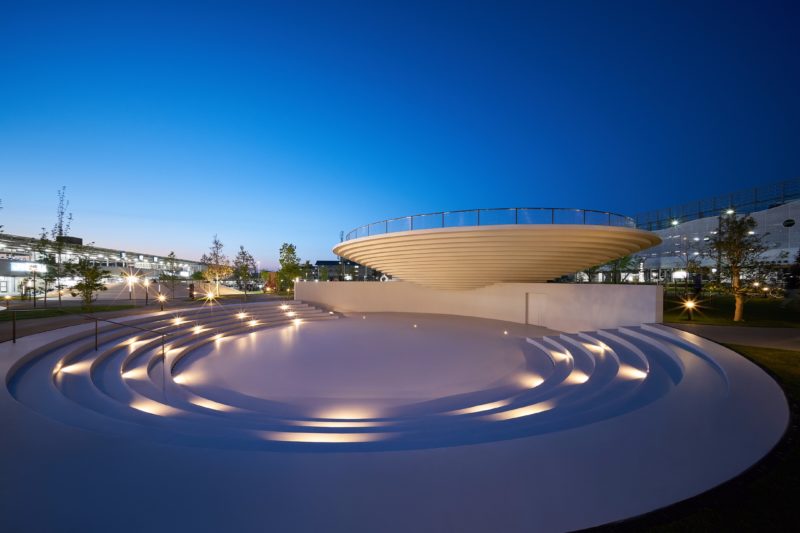
The idea behind it
Nendo explained the concept of the design as following:
Tenri’s urban boundaries include a number of ancient Japanese tombs, known as ‘cofun’. The cofun are beautiful and unmistakable but blend into the spaces of everyday life in the city. The plaza’s landscape, richly punctuated by several of these cofun, is a representation of the area’s characteristic geography: the Nara Basin surrounded on all sides by mountains.
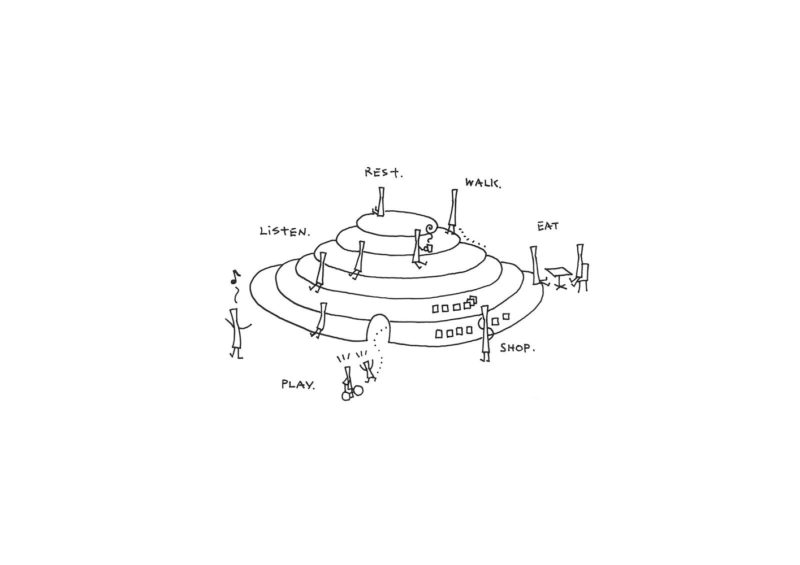
Video
1 min 30 sec
How it was made
How it was made
The majority of the concrete erections in the Tenri Station Plaza were fabricated away from the site and then transferred to the site, allowing the material molds to be utilized more than once, making the entire process cost-effective.
Around the plaza are signboards and guideposts that feature gentle curves like those of a real cofun but are colored with a dark grey, which creates a natural distinction while still blending in with the surrounding area perfectly.
The materials and coloring of the inside of the saucers were created in such a way to match those of the main plaza as much as possible. The fixtures and furniture 2 were constructed from wood obtained from Nara Prefecture and styled around a cofun theme to develop a sense of consistency with the plaza.
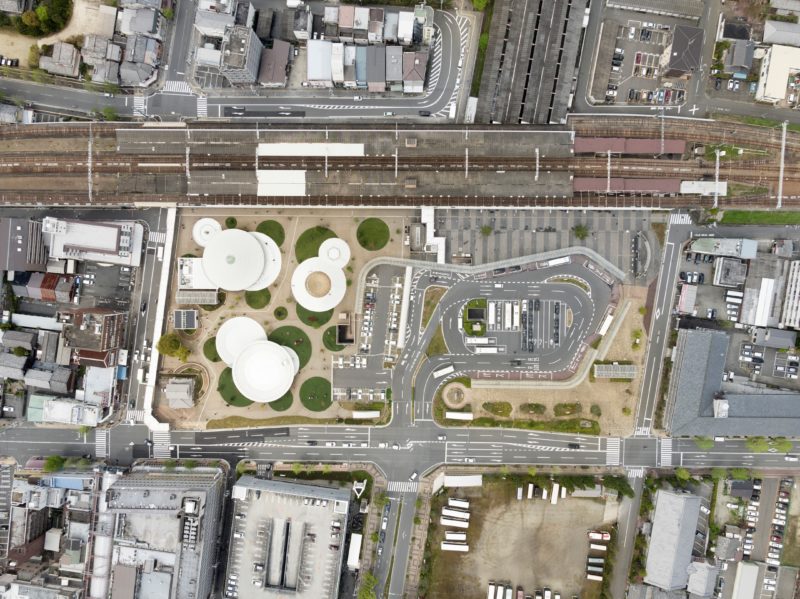
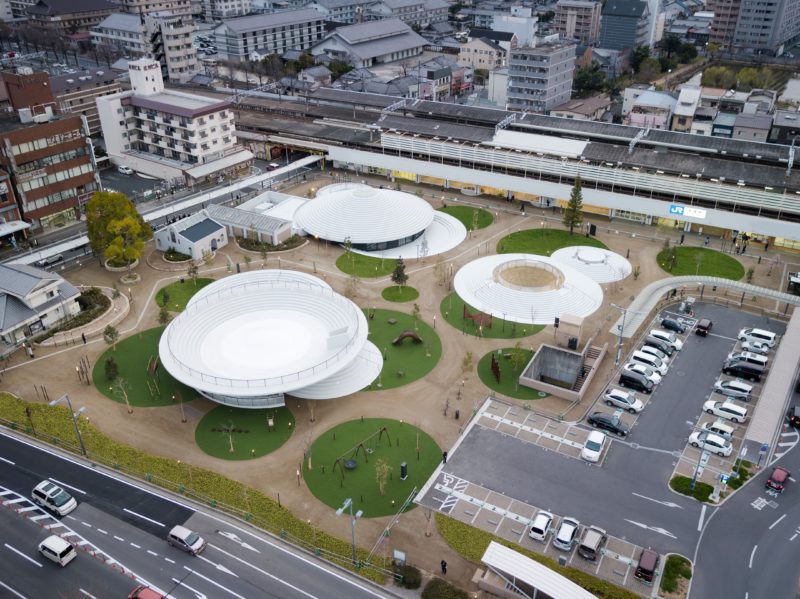
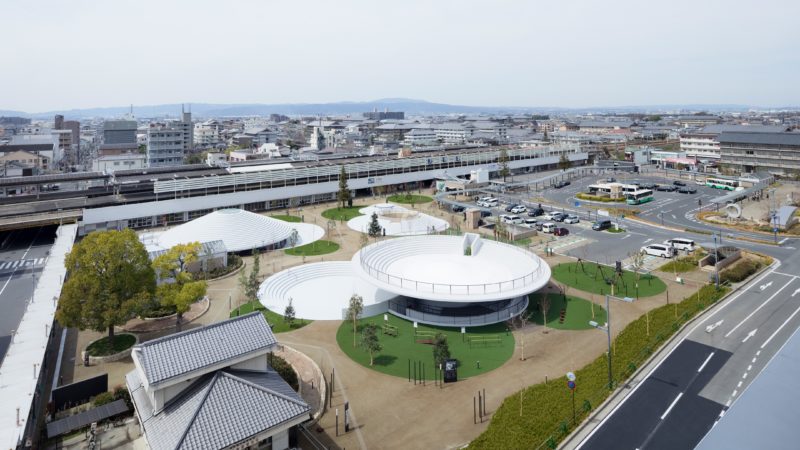
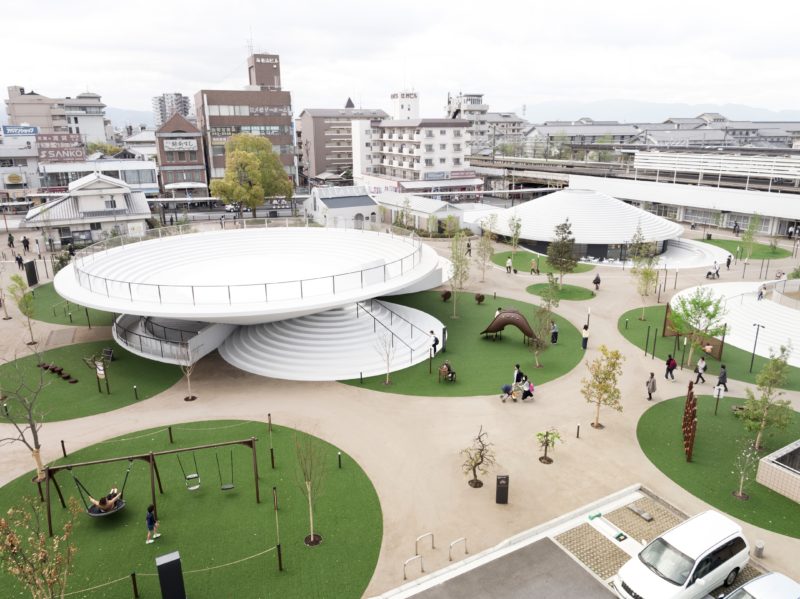
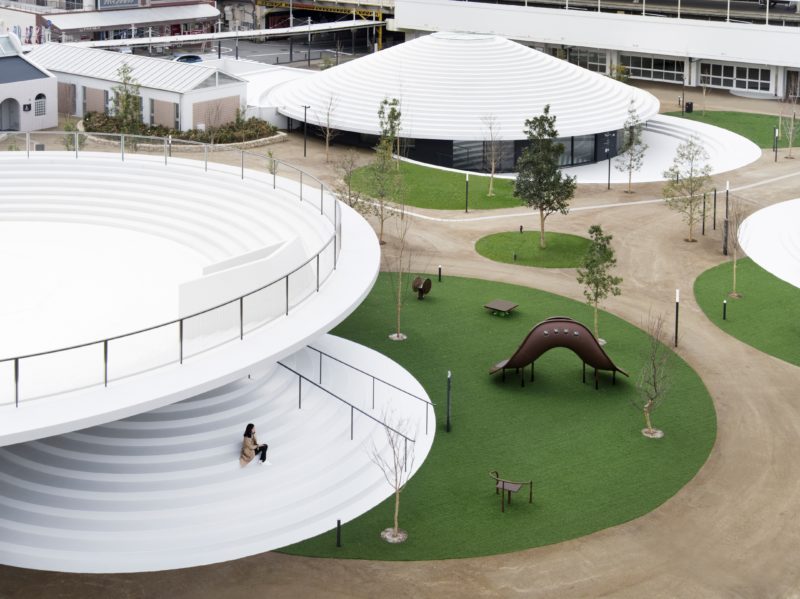
Different functions
The plaza includes a chain of white circular structures that also serves as multi-functional pavilions housing shops, cafés, information kiosk, playground, bike rental, an outdoor stage, and a meeting area. The structures have been arranged according to their function, at four different heights to curtail noise levels.
The design team said:
The design for the plaza should offer a convivial atmosphere that unconsciously leads visitors to hum, happily, while they are there.
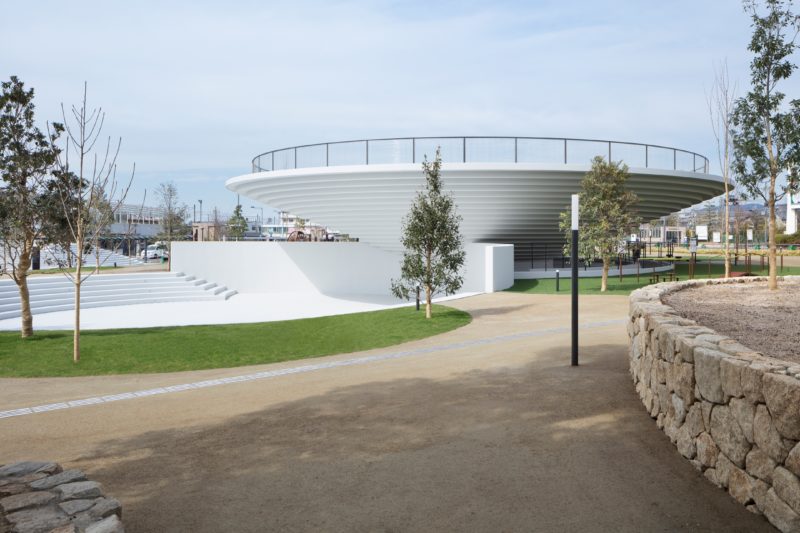
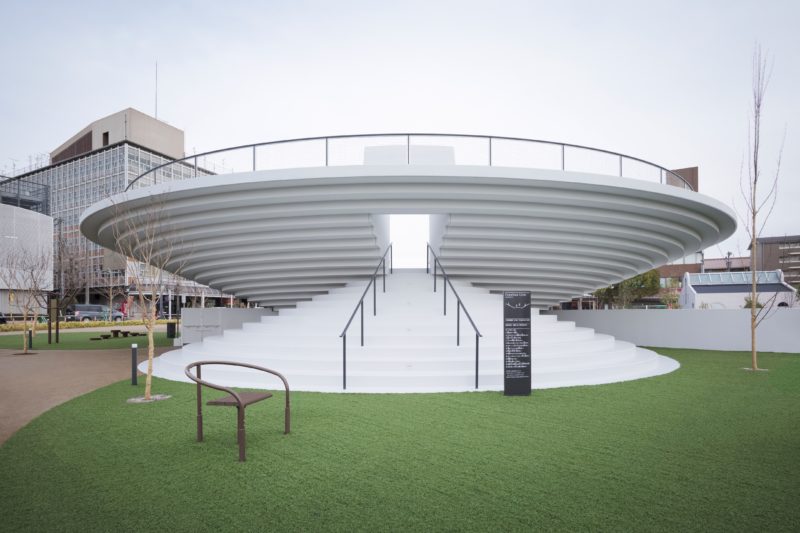
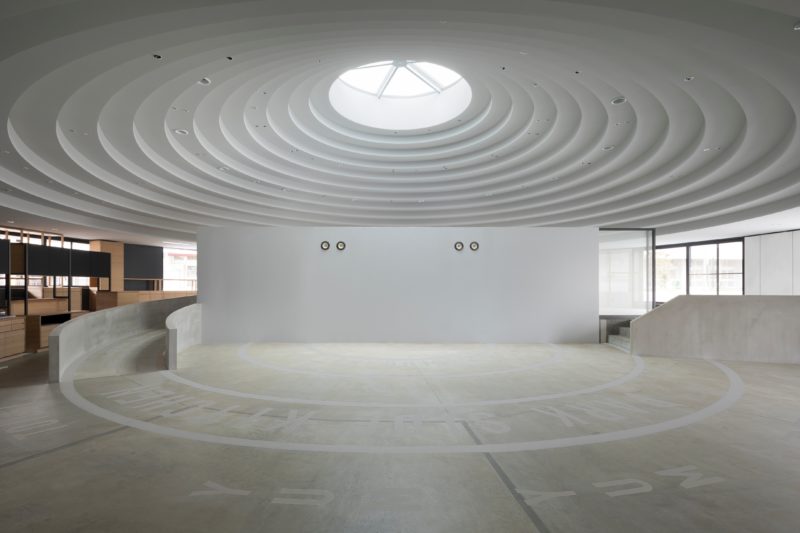
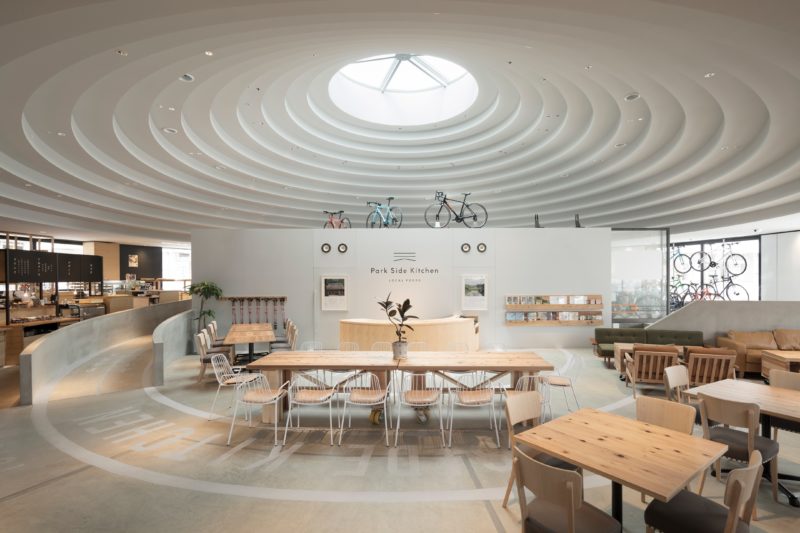
Why does the Tenri Station Plaza CoFuFun matter?
Putting the humor aside, these modern interpretations of cofun are perfect for public space. Steep layers beckon all sorts of purposes, including seating, steps, roofs, shelves for items in shops, fences, as well as beautiful sculptural forms for navigating around o your daily commute.
Rather than being a gateway, Tenri Station plaza is in itself; a destination, and it takes on board its responsibilities of providing space for visitors to wait, meet or simply waste time while triggering its prospective to unite people and revitalize the community.
The variety present at the plaza creates an environment that inspires visitors to come and explore as well as spend time in different spaces in the confines of the plaza, rather than limiting their movements to just a single place.
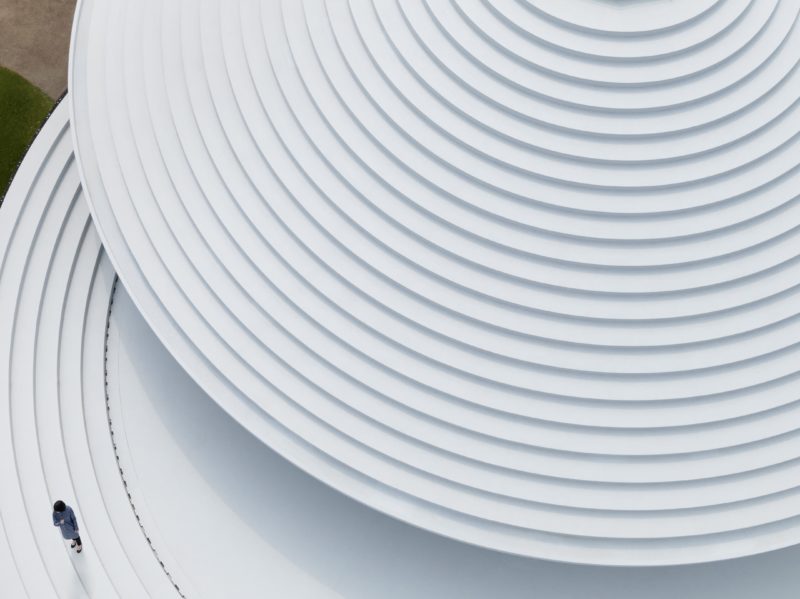
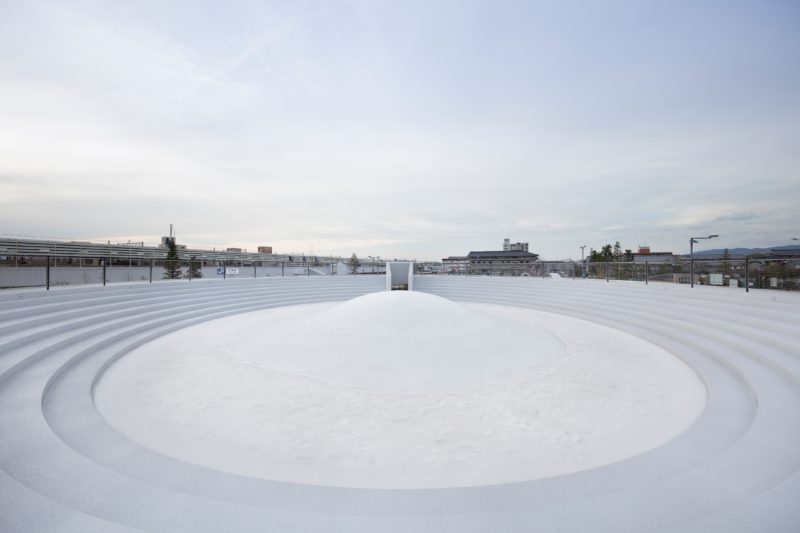
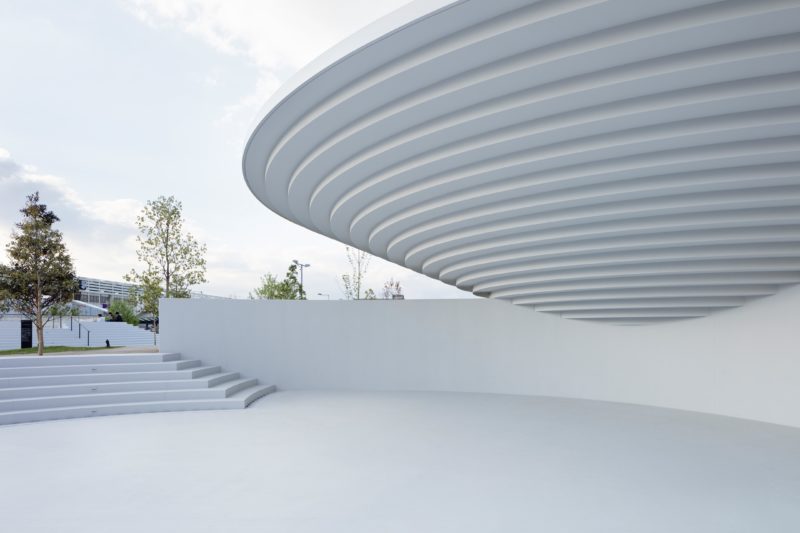
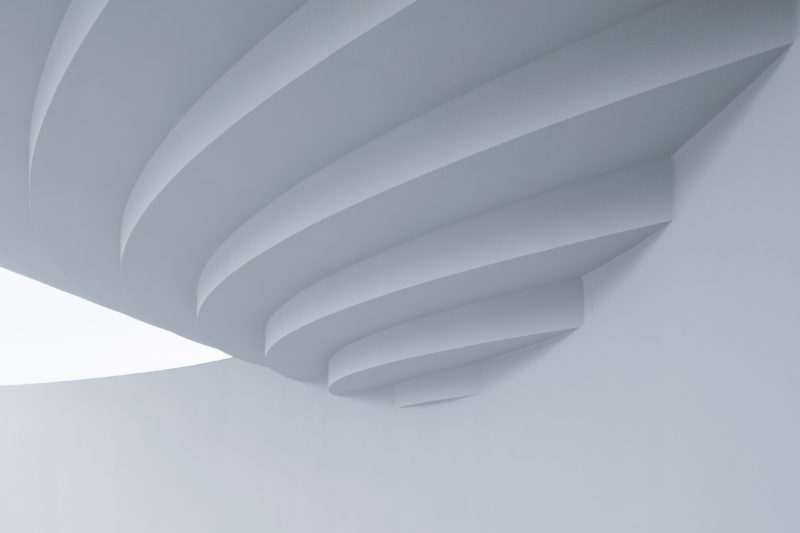
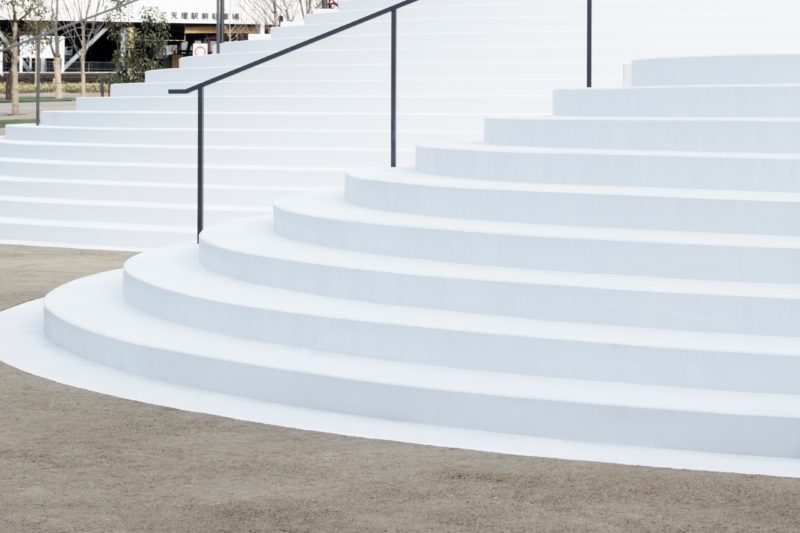
What does the name mean?
The architect behind this wonder, however, could not resist using wordplay when naming the project, which effortlessly blends the Japanese vocabulary with international appeal. CoFuFun is made of two Japanese words with a different meaning.
The first word is cofun, an ancient tomb, while fufun means a happy, unconscious humming. On the other hand, the prefix ‘co’ brings about the thoughts of ‘co’-operation and ‘co’-mmunity, and obviously, there is fun itself.
Who is Nendo?
Nendo is one of the most popular studios in Japan, won the competition. Nindo, with offices both in Tokyo and Milan, is known for its wide range of portfolio of retail interiors, industrial design, and branding. It can be seen in CoFunFun that the studio summoned every bit of that diverse expertise.
Despite the size of the project, Sato says they were not intimidated, and as a matter of fact, tried to design huge furniture instead of an architecture piece.
The brain behind CoFunFun, Oki Sato, is one of the most in-demand designers in the world and juggles about 400 projects simultaneously.
I believe the more you design, the more you want. The reason why I work on so many projects is that I feel the more output I have, the more input I can have.
Sato is allergic to the type of grandiloquent gestures other designers like to make, yet his unassuming designs are witty and playful. It is no coincidence that people love CoFunFun. The designers wanted to make it as user-friendly as possible and create a sense of flow so that visitors can move effortlessly.
Sato says:
I believe products should be simple enough for people to use without reading a thick manual. For me, a good design is something you can successfully explain to your mother over the phone.
The designer also likes to use humor in his work, which is evident in every aspect of the CoFunFun, a counterpoint to potentially po-faced minimalism.
Japanese design and architecture are about minimalism, poetry. They reduce things down, which creates certain magic, but when this is done too much, an object loses its warmth, it repels people. That is not how I want my designs to be. I like them to have humor and to surprise, which creates a link to the user.
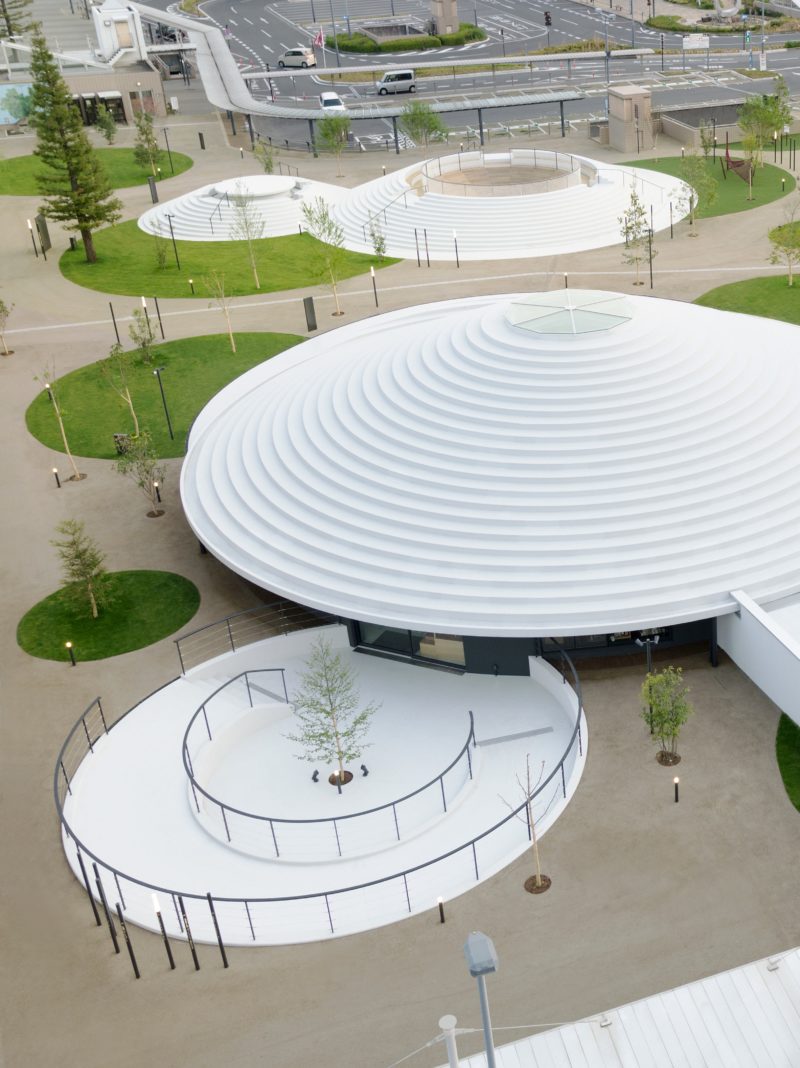
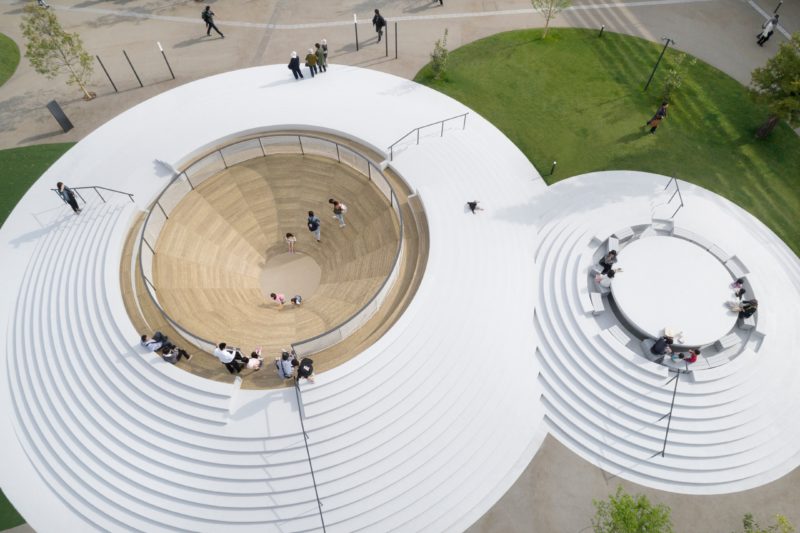
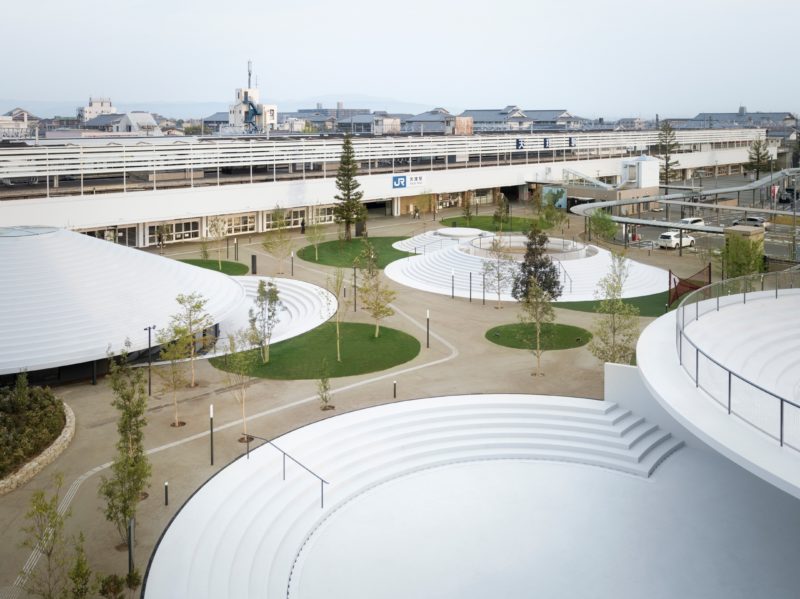
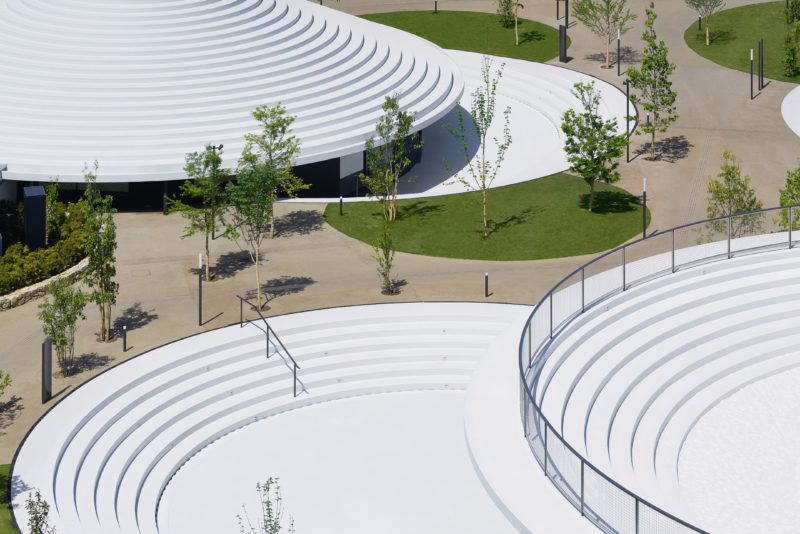
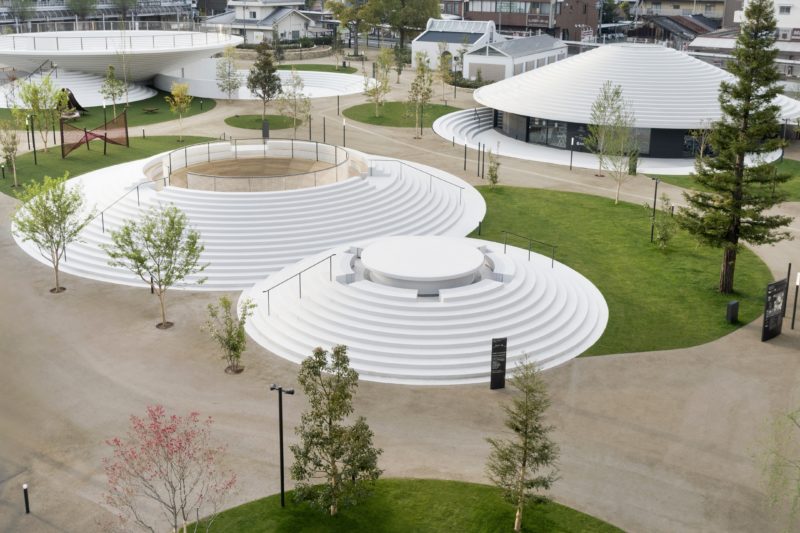
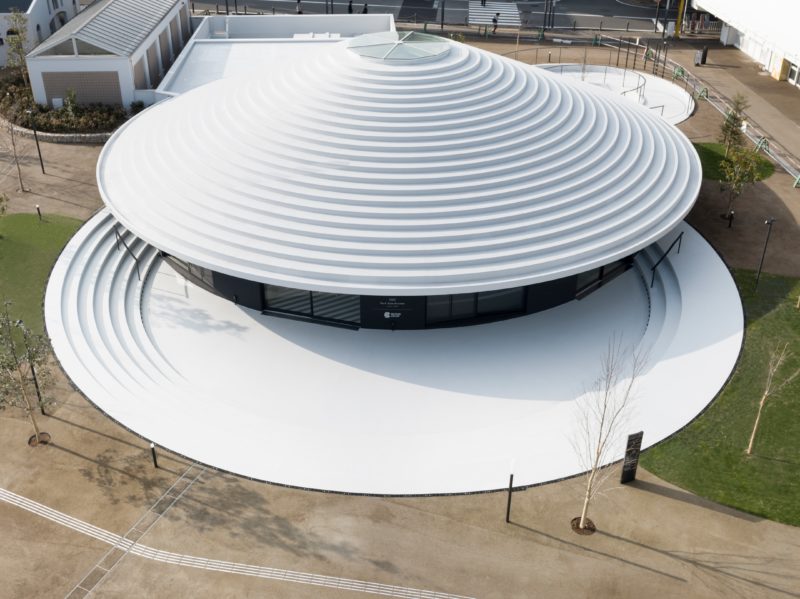
Conclusion
CoFunFun is a playground for children, a stage that can host concerts, a study space, and public screenings. There is also a souvenir shop where visitors can buy Tenri souvenirs. It is inspiring how art can turn space that was once dull into a lively place.
Sato says:
I heard that when citizens see so many gathers at the plaza for weekend events, they are surprised to find that so many other people live in Tenri.
